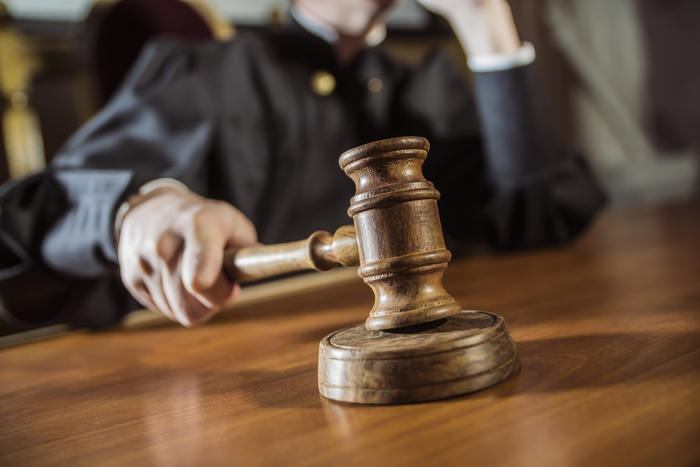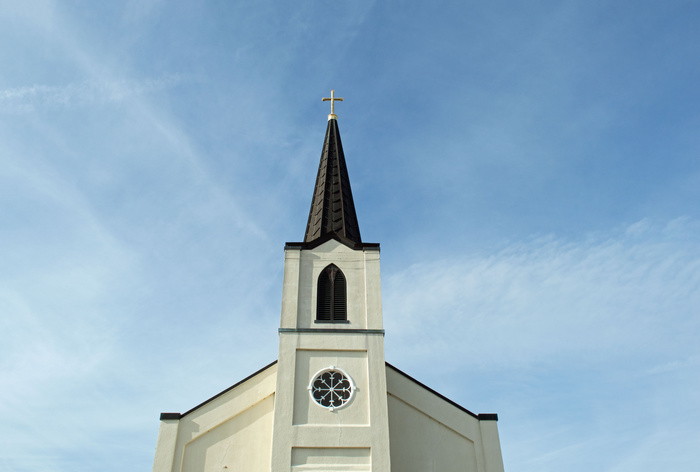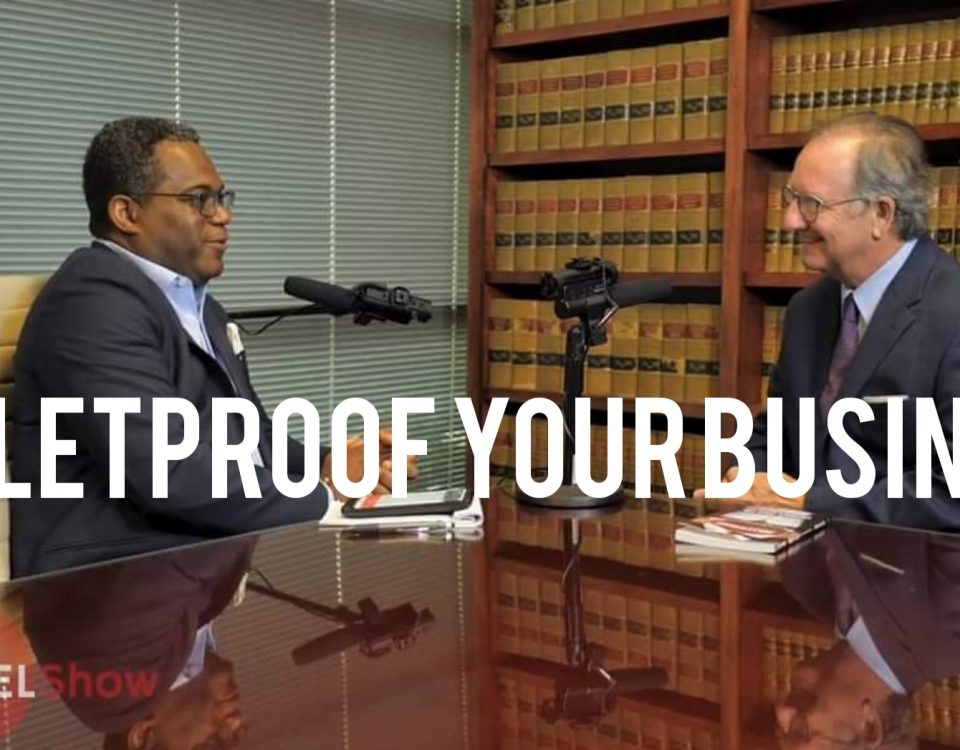
Legal Update: LGBTQ Supreme Court of the United States Ruling
June 16, 2020
Leadership Is Always the Problem … Leadership Is Always the Answer!
December 18, 2020LEGAL RULING AND IMPACT
The Supreme Court of the United States issued a landmark decision on Wednesday, preventing the application of anti-discrimination laws to religious institutions.
In a 7-2 decision, with liberal justices Ginsburg and Sotomayor dissenting, the court explained that the “ministerial exception” (which was previously ambiguous and potentially exposing every ministry and religious school to discrimination claims) applies to religious schools and other religious institutions.
Wednesday’s “decision came in a pair of cases, both filed by fifth-grade teachers against parish schools in the Los Angeles area” whose contracts had not been renewed by their schools.
Justice Alito reaffirmed “that the First Amendment bars the government from interfering with the right of churches and other religious institutions to decide issues relating to their faith and doctrine.
“Closely related to that right, Alito reasoned, is the idea that religious institutions should be able to make their own decisions on how they are run, including ‘the selection of individuals who play certain key roles.’
“The ministerial exception, Alito explained, grew out of the idea that religious institutions should be able to both choose and, if necessary, remove a minister without government interference. To determine whether the ministerial exception applies, Alito wrote, ‘a variety of factors may be important.’ Whether a religious institution calls an employee a ‘minister’ is not, standing alone, dispositive, particularly because some faiths do not use that title. ‘What matters, at bottom,’ Alito stressed, ‘is what the employee does’.” (The quoted, italicized material is drawn from https://www.scotusblog.com/2020/07/opinion-analysis-court-rules-that-catholic-elementary-school-teachers-are-ministers-cannot-sue-for-employment-discrimination/.)
A good synopsis of the impact of the issue can be found on the Catholic News Agency site:
https://www.catholicnewsagency.com/news/what-the-supreme-court-ministerial-exception-ruling-could-mean-for-lgbt-employment-lawsuits-84302.
NEXT STEPS
Our earlier advice remains solid: Churches, Religious Schools and Ministries need to update their documents to clearly establish their Core Beliefs. Updating Employment Manuals and Employment Contracts to include an updated Statement of Faith is vital to take advantage of the new Supreme Court Ruling.
1. CHURCHES AND MINISTRIES THAT HAVE UPDATED THEIR BYLAWS AND STATEMENT OF FAITH:
If your church, school or ministry has updated its bylaws under our suggested protocols and has added marriage and sexual orientation/gender identity language to those bylaws, CONSISTENCY OF USE AND APPLICATION are more critical than ever. These protections will be of high importance in protecting your right to hire and fire according to your beliefs.
- Statement of Faith which references your stand on marriage, sexual orientation and gender must be included in all hiring and orientation procedures in the church, school or ministry.
- Volunteer Agreements should include a copy of your statement of faith and require the applicant to affirm that he/she has read the statement of faith and agrees to abide by it as an authorized church, school or ministry volunteer.
- Employment Agreements should include a copy of your statement of faith and require the applicant to affirm that he/she has read the statement of faith and agrees to abide by it as an employee of the church, school or ministry.
- Facilities Use Agreements should be used when allowing the church, school or ministry facilities to be used by any third party. The facilities use agreements should include a copy of your statement of faith and require the applicant(s) to affirm that he/she/it/they have read the statement of faith and agree(s) to abide by it during the use of your facility.
THESE AGREEMENTS ARE AVAILABLE THROUGH OUR OFFICE IF YOUR CHURCH, SCHOOL OR MINISTRY NEEDS UPDATED FORMS. BE CONSISTENT IN THEIR USE. PROTECT YOUR RIGHTS!
2. CHURCHES, RELIGIOUS SCHOOLS OR MINISTRIES THAT ARE NOT INCORPORATED AND/OR HAVE NOT UPDATED THEIR BYLAWS AND STATEMENT OF FAITH:
There has never been a more urgent time for unincorporated churches, religious schools or ministries to file for incorporation. Unincorporated churches, religious schools and ministries are sitting in the most vulnerable legal framework, potentially exposing the pastor, elders, trustees and, in some extreme cases, the congregants to personal legal liability!
Incorporation of the church, religious school or ministry places the organization in a legal framework that protects board members, leaders, and the pastor(s) from personal liability in many claims – like employment discrimination. The bylaws and legal documents are an ideal place to articulate your statement of faith to address the LGBTQ issues that may arise from recent Supreme Court decisions. Every unincorporated church, religious school or ministry in America would be well served in taking the following steps to ensure its freedom of religion under the Constitution:
- Incorporate the organization.
- Draft new bylaws that specifically and intentionally reflect the polity of the religious organization.
- Draft an updated statement of faith with references to your scriptural beliefs on marriage and sexual orientation.
- Volunteer Agreements should be used throughout the organization and should include a copy of your statement of faith and require the applicant to affirm that he/she has read the statement of faith and agree to abide by it as an authorized volunteer.
- Employment Agreements should be used and should include a copy of your statement of faith and require the applicant to affirm that he/she has read the statement of faith and agrees to abide by it as an employee of the organization.
- Facilities Use Agreements should be used when allowing the facilities of your religious organization to be used by any third party. The facilities use agreements should include a copy of your statement of faith and require the applicant(s) to affirm that he/she/it/they have read the statement of faith and agree(s) to abide by it during the use of your facility.
IF YOUR CHURCH, RELGIOUS SCHOOL OR MINISTIRY HAS NOT BEEN INCORPORATED, PLEASE CONTACT OUR OFFICE TO IMPLEMENT THE IMPORTANT STRATEGY OUTLINED ABOVE TO PROTECT YOUR RELIGIOUS FREEDOM UNDER THE NEW LAWS.
3. VIRGINIA CHURCHES AND VIRGINIA LGBTQ STATE LEGISLATION
In addition, my Virginia church clients have been asking about the effect on churches of the “Virginia Values Act” signed into law by Governor Ralph Northam on April 11, 2020.
On February 6, 2020, the Virginia General Assembly passed the “Virginia Values Act,” which provides nondiscrimination protections for LGBTQ people in employment, housing, credit, and public accommodations. The bill, which went into effect July 1, was signed into law by Governor Ralph Northam on April 11, 2020, making Virginia the first in the South — and the 21st state across the United States — to pass anti-discrimination protections for claims based on LGBTQ status.
Northam said in a statement:
“This legislation sends a strong, clear message — Virginia is a place where all people are welcome to live, work, visit, and raise a family. We are building an inclusive Commonwealth where there is opportunity for everyone, and everyone is treated fairly. No longer will LGBTQ Virginians have to fear being fired, evicted, or denied service in public places because of who they are.”
Does the religious exemption provided in the Virginia Values Act protect churches in hiring and firing in the Commonwealth of Virginia?
I believe churches, religious schools and ministries are still exempt in their hiring/firing decisions, but this is emerging law. The Virginia “religious exemption” is weak, possibly by intention. I believe the exemption most likely will apply to churches, religious schools and ministries following the recent Supreme Court ruling. But even beyond the statutory exemption, and more importantly, churches and now religious schools and ministries have constitutional rights under the U.S. and Virginia Constitutions. These constitutional protections generally trump state anti-discrimination laws. There is excellent authority on our side, like the ministerial exception SCOTUS (Supreme Court of the United States) decision in EEOC v. Hosanna Tabor Lutheran School, which held that anti-discrimination laws don’t apply to religious institutions that hire and fire in ministerial positions according to their faith and beliefs.
Some challengers still argue that churches and other religious organizations should not get a full pass. They begrudgingly admit (as they must) that churches are free to hire and fire ministerial type positions according to their beliefs. But they would say that in a non-ministerial position – say, a custodian – the church may prefer someone of its own faith but can’t fire or refuse to hire based on other protected classes. Their argument has not gotten anywhere against churches, but expect it to be raised with new vigor after this recent Supreme Court decision. But from our experience, the churches that are clearest in their faith statements are less likely to be targets of these suits. The careless religious organizations, without a supporting record of beliefs, are a far more inviting target.
They are more likely to go after marginally Christian schools, or religious ministries with a less religious “feel.”
My current position is that, while there is no absolute certainty, current Supreme Court authority and the religious exemptions in the law create a high probability that churches, religious schools and ministries are protected from these types of lawsuits. But even with those protections, it is always wise for religious organizations to adopt our recommended updated Statement of Faith, as these protected beliefs have to be established in case there is ever a challenge.
It is beyond dispute. It is in a church’s and a ministry’s best interests to adopt and formalize those beliefs and provide consistent application throughout the organization.
OUR OFFICE STANDS READY TO HELP, CLARIFY, COUNSEL OR PROVIDE ANY NECESSARY INFORMATION OR DOCUMENTATION TO ENSURE THE MAXIMUM 1ST AMENDMENT RELIGIOUS FREEDOM PROTECTIONS IN TODAY’S CHANGING LEGAL ENVIRONMENT!
With deep respect in Christ,

Stephen D. Lentz, Esq.
Senior Counsel


